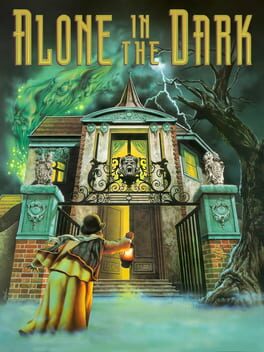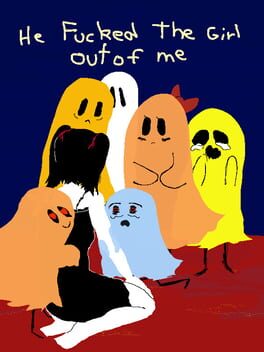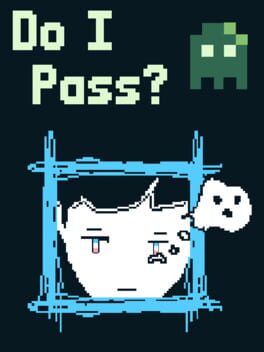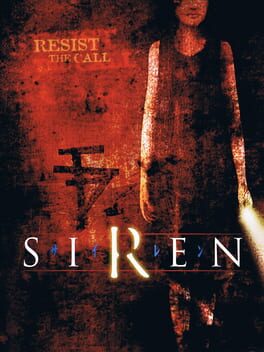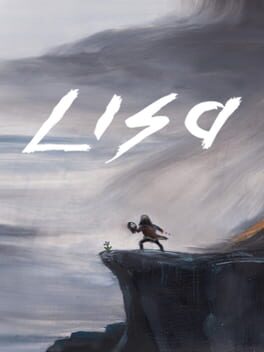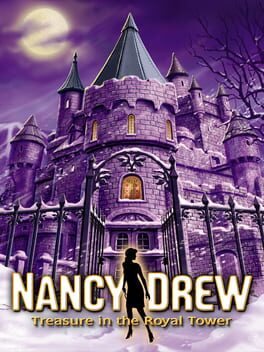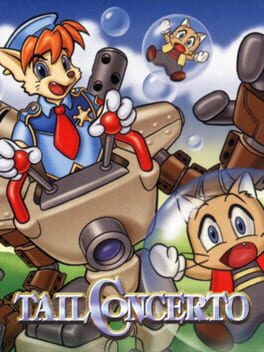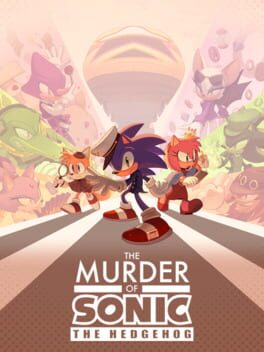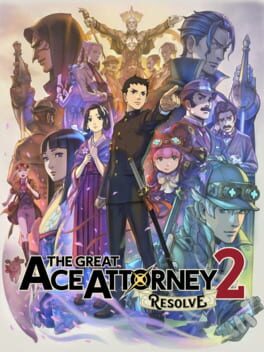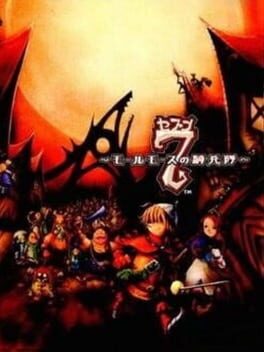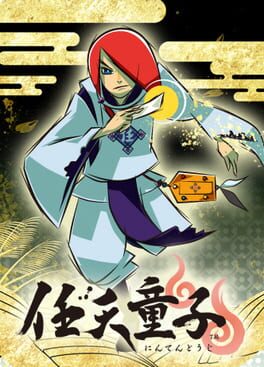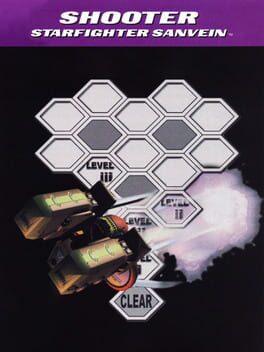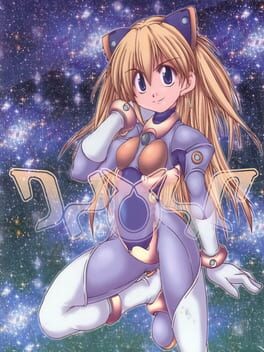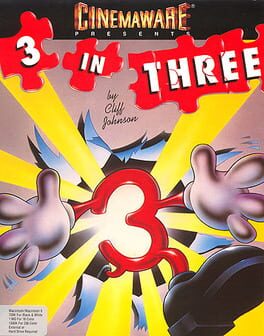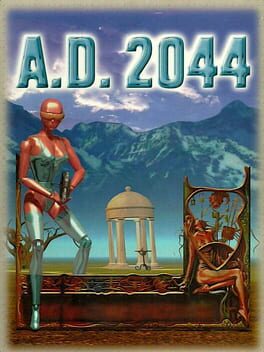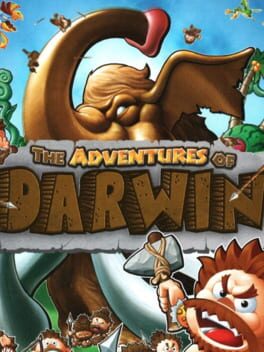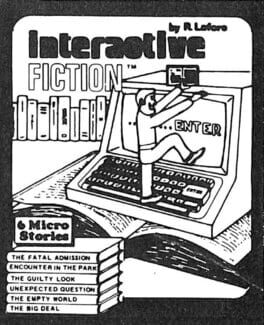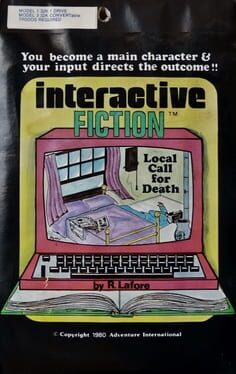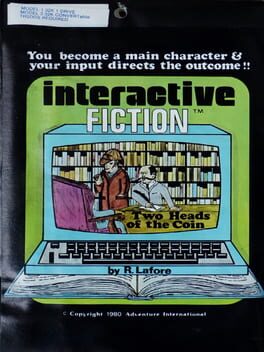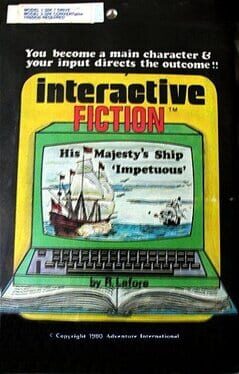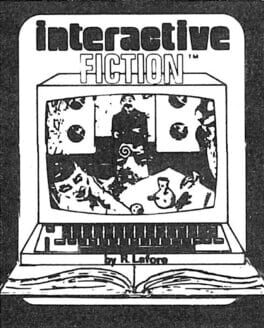banhbos
91 reviews liked by banhbos
Alone in the Dark
1992
This is what Resident Evil would look like on Gameboy Color!
Alone in the Dark is the grandfather of the survival horror genre, and honestly not much else other than being known for its name and having 4 reboots that each failed miserably.
it's not that deep of a game, imagine resident evil 1 but with awful controls, visuals that resemble StarFox, an overflow of useless items with a limited inventory, AWFUL combat, and obviously some cryptic puzzles.
Yeah, yeah I know I'm being harshed and it's pretty damn impressive for 1992, it does hold some historical values and such but this is a website where gamers talk about the games and not artistic and historical values, as a game it sucks and I wouldn't recommend it to anyone, I can't even ask for like a remaster because the game is still painfully generic in its story and visuals so you might as well just play resident evil 1.
That's kinda it about this game, it's really short like 5 hours long at best, it's just funny how Resident Evil 1 is still kind of a 1:1 with this game, they both have the puzzles, the manor, and the really annoying final part that change the gameplay and turn into an escape sequence.
Overall a pretty forgettable game outside of historical values and shouldn't have gotten that many reboots, like c'mon by the time I'm writing this there's a new reboot coming! Sometimes you should just let things go and start making something new.
Alone in the Dark is the grandfather of the survival horror genre, and honestly not much else other than being known for its name and having 4 reboots that each failed miserably.
it's not that deep of a game, imagine resident evil 1 but with awful controls, visuals that resemble StarFox, an overflow of useless items with a limited inventory, AWFUL combat, and obviously some cryptic puzzles.
Yeah, yeah I know I'm being harshed and it's pretty damn impressive for 1992, it does hold some historical values and such but this is a website where gamers talk about the games and not artistic and historical values, as a game it sucks and I wouldn't recommend it to anyone, I can't even ask for like a remaster because the game is still painfully generic in its story and visuals so you might as well just play resident evil 1.
That's kinda it about this game, it's really short like 5 hours long at best, it's just funny how Resident Evil 1 is still kind of a 1:1 with this game, they both have the puzzles, the manor, and the really annoying final part that change the gameplay and turn into an escape sequence.
Overall a pretty forgettable game outside of historical values and shouldn't have gotten that many reboots, like c'mon by the time I'm writing this there's a new reboot coming! Sometimes you should just let things go and start making something new.
Firstly I'm openly reflecting upon this game so that people know that if you care about LGBT aubiographical trauma games (ie. No One Can Ever Know, Madotsuki's Closet, etc.) this is a very significant one to get to. My guess is that if you follow LGBT people, including me, youre going to see this on a lot of 'end of year' lists.
Now one thing I want to point out that is interesting is that due to how emotionally affecting this is, most people have gone on to speak about how it made them cry or reflect their own experiences. Even from people on here actually known for usually writing more erudite reflections. This speak to the power of its performance, but I'll be the one to highlight how.
Once you run the game on browser it blows up to fill your whole browser windows as large as possible, regals you the controls and then allows you to walk. Then, once you move to the edge of the screen 2 things happen:
Would you like to see trigger warnings? (Yes, No)
And then the first line of self narration from Ann: "The problem with talking about this is: I don't know how people will react"
One of the narrative vulnerabilities that segments this from other games of this type is that it will absolutely ask you as a player to think about your intentions in play. Pretty immediately, Ann covers both the fact that sex-work is often lionized and that this is fine by trans people as a narrative of independency. And also that, not simply just the 'text' but the main autobiographical narrator does NOT want this game to be used as a weapon to scold sex workers. What makes this great is that she effectively pulls this off without resorting to second person phrasing saying 'you might think' etc.
Ann is deeply unjudgemental in a general sense but also correctly figures out through her own internalizations that she doesn't really know yet who is reading that, that who could be anybody.
Ann as a character is very timid, flat, and introspective allowing for her lines to travel to the player directly and without flourish. Lines flow out of Ann completely naturalistically like "I couldn't really hear anything" rather than trying to describe it in some detail or another. This enhances the fact that its utilizing the smaller text box design of game boy games. Comprehension and clarity never become an issue during play.
The story is about how Sugaring made Ann less connected to her sense of self-worth and identity as a woman, which may explain why her avatar is a ghost rather than any attempt at depicting herself as a trans woman who just came out recently. It works as another fracture to remind the player that this is just a representation of the events reinterpreted by an older developer who views it as trauma.
Even outside of that the visual design and compositions are absolutely masterful. For example you end up seeing her crush sally from every angle in 2D space during close up scenes, when you move from walking to full on portraits. All of them are gorgeous but here's 2 examples from early on. Even for people who may not personally get much from the story itself, the mastery of the art design is to die for, especially if you're a fan of Game Boy Color games.
I'll join everyone else quickly on the more personal reflection here I admit this part is a bit TMI so skip it if you don't care:
I have always personally had a unstable relationship with the prospect of sex work, due to my own economic conditions and general dysphoria I haven't even felt close enough to the state I want to be in in order to really consider it. Hell the best camera I have for online sex work is a web camera that had its hinge broken off because a friend smacked a fly. So I have actually engaged in and desired the idea of sex work as somewhat of a liberatory function, mostly for online because I always saw irl stuff as both much more seedy and much more anxiety inducing. The matter of fact is I'm a bit of an agoraphobe in general because I can't control how im seen, not just a fear of transphobia but a functionally Weirder fear that I might be only beautiful from a specific angle and the fact I dont have a camera that shows people that angle makes me miserable. As such I tend to also imbue sex work with this mystic sensibility that anybody doing that probably feels visually just perfect, a 2nd order jealousy and dysphoria justified. To a large degree I think this is probably just my own brainrot due to dysphoria, but the reason I'm giving so much depth on this set of cognitive interactions and desires is that while Ann is not critical against embellishing sex work outright, she does show that its not all fun and games for Sally and that Sally feels sort of like she needs to put up a 'sociopathic' identity in order to detach. Even if you are stunning and beautiful, and even if you can utilize it to get independence through others. The fact of the matter is a large part of the game is about being desired yet trying not to let yourself 'know' the other person too much.
On a larger point this is not the only occupational ability given this degree of fixation as a liberation tool in Transfemme spaces. The Blackpaper by Nyx Land is a now slightly dated manifesto that makes a dramatic argument that Transwomen and coding are intertwined, using a quite conspiratorial logic via connecting the word UNIX to biblical references. Seeing this as a 'high IQ' form of liberation, a lot of trans women also imbue coding with this sort of liberatory function, and I feel I should stress that it's actually mostly harmless. While the Blackpaper is weird it imbues a lot of transwomen with a faith and narrative to move on. The reality is just that just as Ann shows an inability to endure to the standards of her field the other reality is that even though its a coping mechanism, we shouldn't actually expect queer people to individually 'be' good at something. For one, it takes a lot of time to get to where you want to be anyway, being a good coder or a good sex worker is not that much different a skill than, say, being good at makeup. In the same way its not ok to push transwomen to be better at makeup or tell them they haven't tried hard enough so to does it reflect here. On top of that for non-transfemme people the sentiments we are good at Hoi4, Fighting Games, Coding, Game Development, are all culturally accurate on a large level but still stereotypes. I'm not good at any of this stuff and a result can mean that people often ignore what I am good at or want to be good at. There are a lot of people out there that fail to meet any of these abilities and are seen as unexceptional, the irony is that Ann or more to the fact the author, Taylor, is 'good at Game Design' (or maybe more art design) but that's not core to the narrative at all. She just wants to exist and this happened a decade ago. So when trans people (of any gender) tell you they just want to exist in peace this is more what we mean! We shouldn't have to find a skill that makes us separated from transphobia, wherein the leisure time to improve in these lionized skills is usually dramatically truncated in comparison to a cis person anyway. The desire to 'overcome' is inherent in anybody looking to escape the chains of capitalist exploitation but we are creatures first, not workers. And as such the narrative of overcoming implies by its own design that others didn't overcome, and until we listen to what they are saying and help them, things aren't going to get better.
Anyway, I straight up don't trust anybody who gave this a 1 out of 10, and I'm summarily blocking all those fuckers in advance. A natural memoir about transphobia and trauma and you give it a 1? Get the fuck out of here with that. A 3-5/10 I can understand, but a 1 is just showing transphobic ass in a way that's 'subtle' enough not to get reported. If you're reading this and you did that, fuck you, I don't want anything to do with you. Scumfuck bastard.
Edit: Franz mentioned to me that these people have a history of doing this. I knew I was onto something. Keep an eye out on these dudes..
Now one thing I want to point out that is interesting is that due to how emotionally affecting this is, most people have gone on to speak about how it made them cry or reflect their own experiences. Even from people on here actually known for usually writing more erudite reflections. This speak to the power of its performance, but I'll be the one to highlight how.
Once you run the game on browser it blows up to fill your whole browser windows as large as possible, regals you the controls and then allows you to walk. Then, once you move to the edge of the screen 2 things happen:
Would you like to see trigger warnings? (Yes, No)
And then the first line of self narration from Ann: "The problem with talking about this is: I don't know how people will react"
One of the narrative vulnerabilities that segments this from other games of this type is that it will absolutely ask you as a player to think about your intentions in play. Pretty immediately, Ann covers both the fact that sex-work is often lionized and that this is fine by trans people as a narrative of independency. And also that, not simply just the 'text' but the main autobiographical narrator does NOT want this game to be used as a weapon to scold sex workers. What makes this great is that she effectively pulls this off without resorting to second person phrasing saying 'you might think' etc.
Ann is deeply unjudgemental in a general sense but also correctly figures out through her own internalizations that she doesn't really know yet who is reading that, that who could be anybody.
Ann as a character is very timid, flat, and introspective allowing for her lines to travel to the player directly and without flourish. Lines flow out of Ann completely naturalistically like "I couldn't really hear anything" rather than trying to describe it in some detail or another. This enhances the fact that its utilizing the smaller text box design of game boy games. Comprehension and clarity never become an issue during play.
The story is about how Sugaring made Ann less connected to her sense of self-worth and identity as a woman, which may explain why her avatar is a ghost rather than any attempt at depicting herself as a trans woman who just came out recently. It works as another fracture to remind the player that this is just a representation of the events reinterpreted by an older developer who views it as trauma.
Even outside of that the visual design and compositions are absolutely masterful. For example you end up seeing her crush sally from every angle in 2D space during close up scenes, when you move from walking to full on portraits. All of them are gorgeous but here's 2 examples from early on. Even for people who may not personally get much from the story itself, the mastery of the art design is to die for, especially if you're a fan of Game Boy Color games.
I'll join everyone else quickly on the more personal reflection here I admit this part is a bit TMI so skip it if you don't care:
I have always personally had a unstable relationship with the prospect of sex work, due to my own economic conditions and general dysphoria I haven't even felt close enough to the state I want to be in in order to really consider it. Hell the best camera I have for online sex work is a web camera that had its hinge broken off because a friend smacked a fly. So I have actually engaged in and desired the idea of sex work as somewhat of a liberatory function, mostly for online because I always saw irl stuff as both much more seedy and much more anxiety inducing. The matter of fact is I'm a bit of an agoraphobe in general because I can't control how im seen, not just a fear of transphobia but a functionally Weirder fear that I might be only beautiful from a specific angle and the fact I dont have a camera that shows people that angle makes me miserable. As such I tend to also imbue sex work with this mystic sensibility that anybody doing that probably feels visually just perfect, a 2nd order jealousy and dysphoria justified. To a large degree I think this is probably just my own brainrot due to dysphoria, but the reason I'm giving so much depth on this set of cognitive interactions and desires is that while Ann is not critical against embellishing sex work outright, she does show that its not all fun and games for Sally and that Sally feels sort of like she needs to put up a 'sociopathic' identity in order to detach. Even if you are stunning and beautiful, and even if you can utilize it to get independence through others. The fact of the matter is a large part of the game is about being desired yet trying not to let yourself 'know' the other person too much.
On a larger point this is not the only occupational ability given this degree of fixation as a liberation tool in Transfemme spaces. The Blackpaper by Nyx Land is a now slightly dated manifesto that makes a dramatic argument that Transwomen and coding are intertwined, using a quite conspiratorial logic via connecting the word UNIX to biblical references. Seeing this as a 'high IQ' form of liberation, a lot of trans women also imbue coding with this sort of liberatory function, and I feel I should stress that it's actually mostly harmless. While the Blackpaper is weird it imbues a lot of transwomen with a faith and narrative to move on. The reality is just that just as Ann shows an inability to endure to the standards of her field the other reality is that even though its a coping mechanism, we shouldn't actually expect queer people to individually 'be' good at something. For one, it takes a lot of time to get to where you want to be anyway, being a good coder or a good sex worker is not that much different a skill than, say, being good at makeup. In the same way its not ok to push transwomen to be better at makeup or tell them they haven't tried hard enough so to does it reflect here. On top of that for non-transfemme people the sentiments we are good at Hoi4, Fighting Games, Coding, Game Development, are all culturally accurate on a large level but still stereotypes. I'm not good at any of this stuff and a result can mean that people often ignore what I am good at or want to be good at. There are a lot of people out there that fail to meet any of these abilities and are seen as unexceptional, the irony is that Ann or more to the fact the author, Taylor, is 'good at Game Design' (or maybe more art design) but that's not core to the narrative at all. She just wants to exist and this happened a decade ago. So when trans people (of any gender) tell you they just want to exist in peace this is more what we mean! We shouldn't have to find a skill that makes us separated from transphobia, wherein the leisure time to improve in these lionized skills is usually dramatically truncated in comparison to a cis person anyway. The desire to 'overcome' is inherent in anybody looking to escape the chains of capitalist exploitation but we are creatures first, not workers. And as such the narrative of overcoming implies by its own design that others didn't overcome, and until we listen to what they are saying and help them, things aren't going to get better.
Anyway, I straight up don't trust anybody who gave this a 1 out of 10, and I'm summarily blocking all those fuckers in advance. A natural memoir about transphobia and trauma and you give it a 1? Get the fuck out of here with that. A 3-5/10 I can understand, but a 1 is just showing transphobic ass in a way that's 'subtle' enough not to get reported. If you're reading this and you did that, fuck you, I don't want anything to do with you. Scumfuck bastard.
Edit: Franz mentioned to me that these people have a history of doing this. I knew I was onto something. Keep an eye out on these dudes..
Usagi Shima
2023
A delightfully cute little game with many cute little bunnies to pet. It’s beautifully illustrated and has that wonderful Neko Atsume vibe. The inspiration is pretty clear, though the differences are also clear! There’s a little more interactivity with the bunnies in the form of brushing, petting, and playing hide and seek, with the latter getting considerably more difficult the more you decorate your island.
Decorating is the second big divergence, as there’s a bigger emphasis on decorating your island with both items the bunnies can interact with and things that exist purely as decorations. You could say that decorating is the true endgame, as it’s honestly a lot easier to meet and befriend all the bunnies than with Neko Atsume and your reward for fully befriending a bunny is, with one exception, a decoration that suits their personality somehow. You can also put hats on the bunnies that don’t already have headgear of some sort!
As a free mobile game there are ads and micro transactions, which I find exceptionally forgivable in this instance because it’s effectively a labor of love by a single dev. I would say that if you do watch the ads to get extra currency rewards you run the risk of perhaps getting everything you want way too quickly. I don’t find decorating for its own sake to be that rewarding so I’m probably effectively done for now, but it made me happy while it went so eh.
It’s very definitely worth playing if you want a silly idle thing, and I would love to come back if it ends up updated with more decorations and bunnies, but given the whole single dev thing that will probably take a while if it ever happens.
Decorating is the second big divergence, as there’s a bigger emphasis on decorating your island with both items the bunnies can interact with and things that exist purely as decorations. You could say that decorating is the true endgame, as it’s honestly a lot easier to meet and befriend all the bunnies than with Neko Atsume and your reward for fully befriending a bunny is, with one exception, a decoration that suits their personality somehow. You can also put hats on the bunnies that don’t already have headgear of some sort!
As a free mobile game there are ads and micro transactions, which I find exceptionally forgivable in this instance because it’s effectively a labor of love by a single dev. I would say that if you do watch the ads to get extra currency rewards you run the risk of perhaps getting everything you want way too quickly. I don’t find decorating for its own sake to be that rewarding so I’m probably effectively done for now, but it made me happy while it went so eh.
It’s very definitely worth playing if you want a silly idle thing, and I would love to come back if it ends up updated with more decorations and bunnies, but given the whole single dev thing that will probably take a while if it ever happens.
Do I Pass?
2019
This review contains spoilers
A beautiful little game that says a lot with just a little. The premise is a concept that I can't imagine any trans person hasn't wished they could do at one point or another - read the minds of those around you to see if you actually "pass" or people are just being nice to you.
You play as the disembodied ghost of a trans girl riding the bus. The beauty of this game lies in the multiple endings, each depending on which people you "talk" to. If you encounter people who can tell you are trans, she walks away sad that she doesn't pass but vows to keep trying. If you encounter people who just think she's cis, she walks away happy that she passes, but with the caveat that maybe she got lucky and the next person she meets could be the one who can tell. Lastly, if you only talk to people who aren't thinking about her at all one way or the other, she comes away still wondering whether she passes, but with the relief that random people aren't actually thinking all that much about you and have their own concerns to deal with.
This last one feels like the "true" ending to me, insofar as there is one, but the real point is that each of the endings is just as true as they are false - even if we could astral project around and read people's minds, it's impossible to ever truly know if we fully pass or not. The people on the bus are the same in each playthrough, the only difference is whose opinion we actually hear. It speaks to the arbitrary nature of "passing" itself, and how the sole pursuit of it as a basis for a successful transition is an unattainable goal.
Despite being just a little homebrew Game Boy game that I played 2 years ago, I keep coming back to this game in my mind, especially when I'm feeling self conscious about passing myself. Even it's something you could know definitively, does it really matter? Does it truly change anything? I consider this one of the essential transfem indie games along with Secret Little Haven. I'm glad it exists.
You play as the disembodied ghost of a trans girl riding the bus. The beauty of this game lies in the multiple endings, each depending on which people you "talk" to. If you encounter people who can tell you are trans, she walks away sad that she doesn't pass but vows to keep trying. If you encounter people who just think she's cis, she walks away happy that she passes, but with the caveat that maybe she got lucky and the next person she meets could be the one who can tell. Lastly, if you only talk to people who aren't thinking about her at all one way or the other, she comes away still wondering whether she passes, but with the relief that random people aren't actually thinking all that much about you and have their own concerns to deal with.
This last one feels like the "true" ending to me, insofar as there is one, but the real point is that each of the endings is just as true as they are false - even if we could astral project around and read people's minds, it's impossible to ever truly know if we fully pass or not. The people on the bus are the same in each playthrough, the only difference is whose opinion we actually hear. It speaks to the arbitrary nature of "passing" itself, and how the sole pursuit of it as a basis for a successful transition is an unattainable goal.
Despite being just a little homebrew Game Boy game that I played 2 years ago, I keep coming back to this game in my mind, especially when I'm feeling self conscious about passing myself. Even it's something you could know definitively, does it really matter? Does it truly change anything? I consider this one of the essential transfem indie games along with Secret Little Haven. I'm glad it exists.
Siren
2003
if silent hill 2 chose to take the path of character study through environment & enemy design that the original silent hill created potential for, then siren chose to build upon sh1's fascination with the occult and the opaque culture and backstory behind the town. for a long time i felt like the cult stuff in sh1 makes it inferior to its sequel, as if it was nerdy lore that got in the way of directly tackling how characters' motivations are projected externally. i don't feel this way as strongly now, but i do think siren is the better exploration of "cult stuff", things that writers toyama and sato are clearly into, than how it was explored in the previous project they worked on.
this is partly due to siren being more formally experimental and more challenging to the player, in more ways than one. you've heard plenty about siren's cryptic gameplay, making it impossible without outside help, and toyama has stated that this was intentional. the aim was that there would be discussions about the game's story content AND figuring out how to progress, influenced by japanese arcades having notebooks in which players wrote hints and secrets for helping others through infamously difficult games, like tower of druaga. we can't engage in that kind of at-the-moment discussion at this point of course, but looking up walkthroughs or otherwise asking others online for help in how to complete, or even just unlock, the second objectives fulfills a similar purpose: engaging with internet as part of the experience of the game.
understanding that is key, as siren both frames itself as inextricable from the internet AND replicating the experience of taking in information through the internet. the game aims to disorient you in the same way the internet disorients your sense of time and space of things: the timeline-jumping plot with 10 playable characters with an excel-grid link navigator as the hub, the sterile and "objective" feeling menu ui, the archive of collectable items of which the descriptions contains the majority of story information, the fact that some of the story exists outside the game itself online in the form of extra short stories, fake forums posts, in-fiction websites that might be gone by now. all this gives the game an impression that you are lost in a labyrinth of databases as you learn more and more, colored by anthropological annotations and paranormal conspiracies--some of them actual real ones being referenced.
siren is a game with a looming sense of doom, leaving you fumbling to make sense of it, only able to come away with reasonable interpretations of things at best. it handles that slow slide into hopelessness better than any horror game i can think of, and that database-atmosphere works to make it feel like it's with your own gradual understanding of things, not just the plot beats, that this slide can be applied to. siren 2 is close to being as good, and many would reccommend it as the friendlier experience, BUT (besides its combat being worse and the plot not having as much impact) its missing what gave siren 1 its lasting impression for me, and thats its daringness to have you unable to grasp at both the full story AND its gameplay sequences on your own. whether asking someone on discord or looking into a years old gamefaq written by some ancestor, siren having you tackle that communal aspect makes it feel ahead of its time, predicting how soulsborne games would do it years before demon's first tried it.
this is partly due to siren being more formally experimental and more challenging to the player, in more ways than one. you've heard plenty about siren's cryptic gameplay, making it impossible without outside help, and toyama has stated that this was intentional. the aim was that there would be discussions about the game's story content AND figuring out how to progress, influenced by japanese arcades having notebooks in which players wrote hints and secrets for helping others through infamously difficult games, like tower of druaga. we can't engage in that kind of at-the-moment discussion at this point of course, but looking up walkthroughs or otherwise asking others online for help in how to complete, or even just unlock, the second objectives fulfills a similar purpose: engaging with internet as part of the experience of the game.
understanding that is key, as siren both frames itself as inextricable from the internet AND replicating the experience of taking in information through the internet. the game aims to disorient you in the same way the internet disorients your sense of time and space of things: the timeline-jumping plot with 10 playable characters with an excel-grid link navigator as the hub, the sterile and "objective" feeling menu ui, the archive of collectable items of which the descriptions contains the majority of story information, the fact that some of the story exists outside the game itself online in the form of extra short stories, fake forums posts, in-fiction websites that might be gone by now. all this gives the game an impression that you are lost in a labyrinth of databases as you learn more and more, colored by anthropological annotations and paranormal conspiracies--some of them actual real ones being referenced.
siren is a game with a looming sense of doom, leaving you fumbling to make sense of it, only able to come away with reasonable interpretations of things at best. it handles that slow slide into hopelessness better than any horror game i can think of, and that database-atmosphere works to make it feel like it's with your own gradual understanding of things, not just the plot beats, that this slide can be applied to. siren 2 is close to being as good, and many would reccommend it as the friendlier experience, BUT (besides its combat being worse and the plot not having as much impact) its missing what gave siren 1 its lasting impression for me, and thats its daringness to have you unable to grasp at both the full story AND its gameplay sequences on your own. whether asking someone on discord or looking into a years old gamefaq written by some ancestor, siren having you tackle that communal aspect makes it feel ahead of its time, predicting how soulsborne games would do it years before demon's first tried it.
Lisa
2014
This review contains spoilers
i do not understand what LISA is trying to say. i mean this both in the literal sense in that characters and their motivations come and go with the fickleness of a windy day in chicago, but also in that, when you look at the text of LISA, it is inane. i wanted to like this game, and, at times, i did. in spite of all that i'm about to say, there are moments in this game that genuinely amuse me. and some of the character stuff comes very close to landing with me, but it completely falls apart upon any level of scrutiny. i played this game in 2019 and only finally got around to finishing this game (3 full playthroughs, one on pain). yet, for a very long time, i've known that i dislike this game, and the biggest hurdle for this review was assessing how much i disliked it, how much was irredeemable, and how i'd be able to properly communicate the certainy i feel in that opinion to any reader.
any time my brain tries to analyze LISA, it goes immediately, as if drawn by a lighthouse on a stormy night, to the scene where brad kills marty. i am one of the few people on earth who seemingly played LISA the first before LISA the painful, so having context for not only marty's mistreatment of lisa as well as brad, i find it extremely difficult to side against brad, as the game wants me to here. marty is implied to have sexually abused lisa, was verbally and physically abusive to brad, and this is just what the player is shown. i not only understand, but endorse the violent murder of marty at brad's hands, especially knowing he's trying to groom buddy. sure, wanton murder isn't exactly moral, but this comes at the tail end of a game where it has forced death upon you with no alternative. in the grand scheme of things, killing marty should not be such a big deal. brad has killed at least a hundred guys by this point, probably more. it's telling that marty claims to have changed, yet one of the very actions he can do when brad fights him is to throw a glass bottle at him, just like in his childhood. but no, you kill marty, and in doing so, physically abuse buddy, and you are absolutely railroaded into this conclusion.
the first time i saw this scene, i assumed it was a heavy-handed hallucination/nightmare on brad's part because something this on the nose is not only poorly written, but poorly executed. why is marty here suddenly? how did he know about buddy? why is buddy so attached to him despite very likely barely getting to know him between the last time we saw buddy and now? to be fair, i'm going to take a good faith interpretation of this moment and say that, okay, sure, marty DID reform and WAS actually a changed man who was going to be a good influence on buddy (despite the game giving no evidence to believe this claim), unlike brad. but what does that say about the events that follow? if that is what was intended by the scene, then what does that say about brad and abuse victims? the only way to complete that moment is to knowingly and intentionally harm buddy, your surrogate daughter, someone the narrative has hammered home is the most important person to brad (and likely the player by this point). is this a metaphor about hurting those you love to protect them? if so, it's clumsy at best. instead, it feels as though the game cums over itself and the armchair psychology textbook it's reading from to go "abuse victims perpetuate the cycle of abuse whether they intend to or not". this is a DSM III type scene attempting to be some big emotional climax of brad's relationship with buddy, and it completely fucking sucks.
i'm all for sad and challenging narratives, but this isn't meaningful, this is just deterministic cynicism at best. brad was always doomed to harm buddy and realistically shouldn't have been anywhere near her. why? because he was never going to accept her personhood or agency and instead was set on using her for his own vindication. the text of LISA is pretty plain and direct in stating this, and it does so with the justification that lisa's suicide on top of marty's abuse forever fucked him in a way he could never recover from. this isn't dark, this is. . . boring! this is a boring read of abuse and how it functions. a narrative that says "a victim of abuse is going to be broken forever and incapable of loving themselves and those around them in a healthy way" is a very standard plot point that we've seen since something as early as 1960's Psycho. this is a standard unconscious social belief. there are bigger plot twists in "everybody poops". if you're going to choose such a standard and unremarkable theme to base your game on, at least do it well.
you can very easily take the perspective that looking at the events like this is results-oriented and that, ultimately, the events that happen in LISA are not meant to be extrapolated into universal applicability and events. i find this to be a cowardly way of viewing art, as art is not made or presented in a vacuum. there is, like it or not, baggage associated with the idea of a cycle of abuse being perpetuated by victims. if you want to use that in your narrative, there are going to be implications and inferrences. this is just how storytelling works. you can divorce yourself from the themes, but you can't deny them. LISA's problem is that it wants to be about nothing, it wants to present this shocking and grotesque world without any real-world grounding just to use shock value black humor. oh man, you made a joke about orphans getting set on fire? let me tell you this really funny dead baby joke while you're at it.
ultimately my root problem with LISA is that i detest what little of austin jorgensen i can find in his work. i do not know the man nor have i ever spoken with him, so i am not going to assert that he is this villain that needs to be taken down. i am, however, someone who has invested a significant amount of time into a game that he largely made on his own (as i understand it, outside of the music, it was a solo endeavor). it's hard to not gleam some fairly repugnant viewpoints from him based on how he portrays sexual violence, gender, and masculinity.
here, let's start with the real winner of the show: Male Rape and how epically funny it is. early in the game you're told there's a woman that exists and is real and is at a location. you go to the location where she is guarded by a fairly difficult boss encounter. you beat the boss, enter the door, and then SURPRISE lmfao the """woman""" was an man!! and it gets funnie because he cries about how they still raped him despite him having a mustache and saying he was a man XDDD and then after meeting him you get an achievement on steam titled Violated Guy, because sexual violence is teh epic pwnage. lastly, if you were unclear as to how serious he is treating the concept of rape, he names this character Fardy. because it sounds like fart. he has brothers named Shardy, Lardy, and Tardy. in-game text states that all his peers hate him.
accuse me of being a huge joyless unfun sjw all you want, i really don't care. i just want to know: what is the point of this character? rofl male rape victims are weak and when they get raped it's funny? compare this to the implied rape (via grooming) of buddy by sticky. the game at least passingly treats this as more serious and worthy of sympathy. it doesn't explicitly come out and say it, but by brad's reaction and the extremely subtle dialogue with sticky afterwards ("she wanted it", "she needed to be educated", etc. etc.), you're given very little room to interpret any alternative. to be fucking blunt, if you're going to have sexual violence in your work and handle it with the shittiest most clumsy portrayal possible, do everyone a favor and just omit it. it's personally offensive to me to see jorgensen point and laugh at a male rape victim and go out of his way to let you know that not only was a man raped, but it's extremely funny and we should be finding this inherently comedic. it's legitimately evil shit to put in your game and it's astonishing to see something so mask off get so little criticism.
i'll jump back and try to be a little more charitable. LISA is a game about the post-apocalypse and what would happen if all the women on earth suddenly disappeared or died or whatever. ok, well what does this world look like? surely infrastructure still exists, it's not like BOMBS fell or anything, right? NOPE, it's mad max out here and men are completely dysfunctional in all meaningful ways without women. i do believe a societal shift and potentially even collapse would occur with the total removal of women. but there's nothing to go off of what happened to cause this beyond "women no longer exist so naturally everything's fucked". like, you're telling me no one's trying to do some IVF or something? maybe trying to do some dolly-esque cloning to make a female? does some of this fall out of the scope of the game? of course, i'm not going to deny that this could come off as pedantic. but so much of this setting is cutting corners just to get to the meat of the narrative, which is men doing heinous and awful things to each other, often in gangs. i need at least something to work with to believe that civilized society could go so poorly so quickly.
but no, men without women to temper their barbarous spirits will naturally form sadistic gangs that seek out nothing but wanton destruction and suffering, as you do. again, this is such a fucking dull take on gender politics. you have an interesting premise and you completely shit the bed just to go into gender essentialism that's existed for centuries. yeah, of course, without women, men will use pornography magazines as currency. sure, that makes sense. there's such a drought of actual gay and trans men in this work too that it makes jorgensen come off as sheltered and telling on himself. did you really not consider what a gay/trans/etc. man would do in this situation or how they would fit into this new world? jorgensen comes off as someone who just wanted to tell a story that begins and ends at "men are inherently violent, women are inherently caregivers, and without one, the other goes wildly out of control."
by the way, this is a video game. i know you might have been confused considering i've said sweet fuck all about the actual gameplay of this video game that i played. and here is my opinion: it has amateur design. i know that's almost a nothing statement considering that jorgensen IS an amateur, but i want to call a spade a spade. he seems to really value and want this aura of "this game is going to make you have to REALLY choose things and it's going to be really difficult to deal with it", but he completely fumbles the execution. oh no, buzzo showed up and wants to cut off your arm or kill the first party member in your team. instead of giving him your arm, you can just reload your most recent save (which is approximately 5 minutes away from this choice), put a character you either don't ever use or outright dislike in that slot, and just kill them that way. you can spend the night at campfires but OH NO sometimes bad things can happen to you like you get poisoned or one of your party members gets held hostage. but, there's a save point near almost every major one, so you can just reload if that happens. or, even better, you can just stay at an inn that charges a measly 10 mags for guaranteed safety. how about when you're forced to do russian roullette? yep, you can just save reload until you get through flawlessly. this is a viable and applicable strategy even on the supposed "pain" mode that was intended to curb this type of behavior. these choices ultimately just end up being unnecessary inconveniences that add nothing to the game. they're speedbumps that you can detour around masquerading as some dark soulsian punishment.
i now want to talk about the part of the game that infuriated me more than any other singular part: the road scholars. for anyone unfamiliar or forgetful, the road scholars are a trap boss fight you will encounter early in the game. you go to a side path and find a small town with no way to heal, and nothing much of note in it. just one way in, one way out. no place to grind for item or money. just. that's it. still, there's a save point, so unless you're playing on pain mode, you're almost certainly going to save. and so you try to leave and suddenly you're accosted by a gang who wants either 100 mags (a significant amount of money by this point in the game) or they're going to destroy the town you just left. i want to stress that there is very little of value in this town in the first place, so this choice from a metagame standpoint doesn't even particularly matter, and thus fails to be "hard". yet, you've likely just saved and you're locked into this worst-case scenario. but, here's the thing: i'm an asshole. i hate when games try to gotcha me like this. i say no, eat shit, i'm fighting you. and i fight them. and i lose. several times. because this fight is very clearly heavily stacked against the player. it's a gotcha, but it's also a trap. you made me make a choice i didn't know i was making then tried to point and laugh at me for the choice i didn't know i made having consequences. these types of things can be done well, and oftentimes having a game react to something you did that you didn't expect it to acknowledge can be some of the best type of stimuli-reaction you can get out of the medium. but this is just a gotcha, an attempt to make me feel as though i should've been more careful when there was no way i could have possibly predicted this outcome would occur. it's not clever, it doesn't elevate the gameplay in any way, and it ultimately just burned goodwill i would've had for the game.
in a sad way i want to give points for effort and heart here, because while i think jorgensen largely missed the mark and likely has a personality i would find repellant, i genuinely respect the authorial stamp he put on this game. it is uniquely and creatively his own, probably for the worse. i still can't quite wrap my mind around the positive reception this game has garnered. this is considered an indie classic and it's frankly baffling to me how it earned such accolades. this game is mechanically unengaging, thematically cretinous, and overall an extreme disappointment considering the mountains of praise that i have seen from both strangers and friends. i can only hope that games we love in 2024 age better than the ones we loved in 2014.
any time my brain tries to analyze LISA, it goes immediately, as if drawn by a lighthouse on a stormy night, to the scene where brad kills marty. i am one of the few people on earth who seemingly played LISA the first before LISA the painful, so having context for not only marty's mistreatment of lisa as well as brad, i find it extremely difficult to side against brad, as the game wants me to here. marty is implied to have sexually abused lisa, was verbally and physically abusive to brad, and this is just what the player is shown. i not only understand, but endorse the violent murder of marty at brad's hands, especially knowing he's trying to groom buddy. sure, wanton murder isn't exactly moral, but this comes at the tail end of a game where it has forced death upon you with no alternative. in the grand scheme of things, killing marty should not be such a big deal. brad has killed at least a hundred guys by this point, probably more. it's telling that marty claims to have changed, yet one of the very actions he can do when brad fights him is to throw a glass bottle at him, just like in his childhood. but no, you kill marty, and in doing so, physically abuse buddy, and you are absolutely railroaded into this conclusion.
the first time i saw this scene, i assumed it was a heavy-handed hallucination/nightmare on brad's part because something this on the nose is not only poorly written, but poorly executed. why is marty here suddenly? how did he know about buddy? why is buddy so attached to him despite very likely barely getting to know him between the last time we saw buddy and now? to be fair, i'm going to take a good faith interpretation of this moment and say that, okay, sure, marty DID reform and WAS actually a changed man who was going to be a good influence on buddy (despite the game giving no evidence to believe this claim), unlike brad. but what does that say about the events that follow? if that is what was intended by the scene, then what does that say about brad and abuse victims? the only way to complete that moment is to knowingly and intentionally harm buddy, your surrogate daughter, someone the narrative has hammered home is the most important person to brad (and likely the player by this point). is this a metaphor about hurting those you love to protect them? if so, it's clumsy at best. instead, it feels as though the game cums over itself and the armchair psychology textbook it's reading from to go "abuse victims perpetuate the cycle of abuse whether they intend to or not". this is a DSM III type scene attempting to be some big emotional climax of brad's relationship with buddy, and it completely fucking sucks.
i'm all for sad and challenging narratives, but this isn't meaningful, this is just deterministic cynicism at best. brad was always doomed to harm buddy and realistically shouldn't have been anywhere near her. why? because he was never going to accept her personhood or agency and instead was set on using her for his own vindication. the text of LISA is pretty plain and direct in stating this, and it does so with the justification that lisa's suicide on top of marty's abuse forever fucked him in a way he could never recover from. this isn't dark, this is. . . boring! this is a boring read of abuse and how it functions. a narrative that says "a victim of abuse is going to be broken forever and incapable of loving themselves and those around them in a healthy way" is a very standard plot point that we've seen since something as early as 1960's Psycho. this is a standard unconscious social belief. there are bigger plot twists in "everybody poops". if you're going to choose such a standard and unremarkable theme to base your game on, at least do it well.
you can very easily take the perspective that looking at the events like this is results-oriented and that, ultimately, the events that happen in LISA are not meant to be extrapolated into universal applicability and events. i find this to be a cowardly way of viewing art, as art is not made or presented in a vacuum. there is, like it or not, baggage associated with the idea of a cycle of abuse being perpetuated by victims. if you want to use that in your narrative, there are going to be implications and inferrences. this is just how storytelling works. you can divorce yourself from the themes, but you can't deny them. LISA's problem is that it wants to be about nothing, it wants to present this shocking and grotesque world without any real-world grounding just to use shock value black humor. oh man, you made a joke about orphans getting set on fire? let me tell you this really funny dead baby joke while you're at it.
ultimately my root problem with LISA is that i detest what little of austin jorgensen i can find in his work. i do not know the man nor have i ever spoken with him, so i am not going to assert that he is this villain that needs to be taken down. i am, however, someone who has invested a significant amount of time into a game that he largely made on his own (as i understand it, outside of the music, it was a solo endeavor). it's hard to not gleam some fairly repugnant viewpoints from him based on how he portrays sexual violence, gender, and masculinity.
here, let's start with the real winner of the show: Male Rape and how epically funny it is. early in the game you're told there's a woman that exists and is real and is at a location. you go to the location where she is guarded by a fairly difficult boss encounter. you beat the boss, enter the door, and then SURPRISE lmfao the """woman""" was an man!! and it gets funnie because he cries about how they still raped him despite him having a mustache and saying he was a man XDDD and then after meeting him you get an achievement on steam titled Violated Guy, because sexual violence is teh epic pwnage. lastly, if you were unclear as to how serious he is treating the concept of rape, he names this character Fardy. because it sounds like fart. he has brothers named Shardy, Lardy, and Tardy. in-game text states that all his peers hate him.
accuse me of being a huge joyless unfun sjw all you want, i really don't care. i just want to know: what is the point of this character? rofl male rape victims are weak and when they get raped it's funny? compare this to the implied rape (via grooming) of buddy by sticky. the game at least passingly treats this as more serious and worthy of sympathy. it doesn't explicitly come out and say it, but by brad's reaction and the extremely subtle dialogue with sticky afterwards ("she wanted it", "she needed to be educated", etc. etc.), you're given very little room to interpret any alternative. to be fucking blunt, if you're going to have sexual violence in your work and handle it with the shittiest most clumsy portrayal possible, do everyone a favor and just omit it. it's personally offensive to me to see jorgensen point and laugh at a male rape victim and go out of his way to let you know that not only was a man raped, but it's extremely funny and we should be finding this inherently comedic. it's legitimately evil shit to put in your game and it's astonishing to see something so mask off get so little criticism.
i'll jump back and try to be a little more charitable. LISA is a game about the post-apocalypse and what would happen if all the women on earth suddenly disappeared or died or whatever. ok, well what does this world look like? surely infrastructure still exists, it's not like BOMBS fell or anything, right? NOPE, it's mad max out here and men are completely dysfunctional in all meaningful ways without women. i do believe a societal shift and potentially even collapse would occur with the total removal of women. but there's nothing to go off of what happened to cause this beyond "women no longer exist so naturally everything's fucked". like, you're telling me no one's trying to do some IVF or something? maybe trying to do some dolly-esque cloning to make a female? does some of this fall out of the scope of the game? of course, i'm not going to deny that this could come off as pedantic. but so much of this setting is cutting corners just to get to the meat of the narrative, which is men doing heinous and awful things to each other, often in gangs. i need at least something to work with to believe that civilized society could go so poorly so quickly.
but no, men without women to temper their barbarous spirits will naturally form sadistic gangs that seek out nothing but wanton destruction and suffering, as you do. again, this is such a fucking dull take on gender politics. you have an interesting premise and you completely shit the bed just to go into gender essentialism that's existed for centuries. yeah, of course, without women, men will use pornography magazines as currency. sure, that makes sense. there's such a drought of actual gay and trans men in this work too that it makes jorgensen come off as sheltered and telling on himself. did you really not consider what a gay/trans/etc. man would do in this situation or how they would fit into this new world? jorgensen comes off as someone who just wanted to tell a story that begins and ends at "men are inherently violent, women are inherently caregivers, and without one, the other goes wildly out of control."
by the way, this is a video game. i know you might have been confused considering i've said sweet fuck all about the actual gameplay of this video game that i played. and here is my opinion: it has amateur design. i know that's almost a nothing statement considering that jorgensen IS an amateur, but i want to call a spade a spade. he seems to really value and want this aura of "this game is going to make you have to REALLY choose things and it's going to be really difficult to deal with it", but he completely fumbles the execution. oh no, buzzo showed up and wants to cut off your arm or kill the first party member in your team. instead of giving him your arm, you can just reload your most recent save (which is approximately 5 minutes away from this choice), put a character you either don't ever use or outright dislike in that slot, and just kill them that way. you can spend the night at campfires but OH NO sometimes bad things can happen to you like you get poisoned or one of your party members gets held hostage. but, there's a save point near almost every major one, so you can just reload if that happens. or, even better, you can just stay at an inn that charges a measly 10 mags for guaranteed safety. how about when you're forced to do russian roullette? yep, you can just save reload until you get through flawlessly. this is a viable and applicable strategy even on the supposed "pain" mode that was intended to curb this type of behavior. these choices ultimately just end up being unnecessary inconveniences that add nothing to the game. they're speedbumps that you can detour around masquerading as some dark soulsian punishment.
i now want to talk about the part of the game that infuriated me more than any other singular part: the road scholars. for anyone unfamiliar or forgetful, the road scholars are a trap boss fight you will encounter early in the game. you go to a side path and find a small town with no way to heal, and nothing much of note in it. just one way in, one way out. no place to grind for item or money. just. that's it. still, there's a save point, so unless you're playing on pain mode, you're almost certainly going to save. and so you try to leave and suddenly you're accosted by a gang who wants either 100 mags (a significant amount of money by this point in the game) or they're going to destroy the town you just left. i want to stress that there is very little of value in this town in the first place, so this choice from a metagame standpoint doesn't even particularly matter, and thus fails to be "hard". yet, you've likely just saved and you're locked into this worst-case scenario. but, here's the thing: i'm an asshole. i hate when games try to gotcha me like this. i say no, eat shit, i'm fighting you. and i fight them. and i lose. several times. because this fight is very clearly heavily stacked against the player. it's a gotcha, but it's also a trap. you made me make a choice i didn't know i was making then tried to point and laugh at me for the choice i didn't know i made having consequences. these types of things can be done well, and oftentimes having a game react to something you did that you didn't expect it to acknowledge can be some of the best type of stimuli-reaction you can get out of the medium. but this is just a gotcha, an attempt to make me feel as though i should've been more careful when there was no way i could have possibly predicted this outcome would occur. it's not clever, it doesn't elevate the gameplay in any way, and it ultimately just burned goodwill i would've had for the game.
in a sad way i want to give points for effort and heart here, because while i think jorgensen largely missed the mark and likely has a personality i would find repellant, i genuinely respect the authorial stamp he put on this game. it is uniquely and creatively his own, probably for the worse. i still can't quite wrap my mind around the positive reception this game has garnered. this is considered an indie classic and it's frankly baffling to me how it earned such accolades. this game is mechanically unengaging, thematically cretinous, and overall an extreme disappointment considering the mountains of praise that i have seen from both strangers and friends. i can only hope that games we love in 2024 age better than the ones we loved in 2014.
treasure in the royal tower is not the ending or the beginning of anything; it is only the fourth entry in a series that pumped out releases with factory conveyor belt-like regularity for fifteen years. and yet, this does feel in some ways like less of an elaboration and more of a culmination of the mechanical ideas that have been at play since the first game, while also introducing more sophisticated narrative elements that i understand will become the hallmark of this series in the future.
the hook for this one is that nancy is trapped during an inexplicable wisconsin blizzard while she's vacationing alone at a ski resort that also happens to inexplicably be a 250 year old french castle that was imported to the states shortly after marie antoinette's execution (this is an important detail) and god damn it you just know there's gonna end up being a mystery that will somehow involve all four of the other people living in this basically abandoned winter nightmare palace.
however, unlike the mansion from the previous entry, the only thing this castle is haunted by is its grumpy owner/proprietor, the one (1) interesting character in possibly the entire series so far since the first game. but he rules i really like this guy. he's the first person in any of these games to display any actual depth, his voice actor is clearly having a lot of fun, and even though the writing still isn't doing enough to lay convincing red herrings, this is a character i actually enjoy spending time with so i don't mind that he's so easy to read.
his story is also larger in scope than those of previous games. mystery in a haunted mansion also featured a location with a treasure hidden in a historically significant location and had you uncovering a backstory as part of a quest to uncover the situation, but this time that concept is intertwined directly with the modern day themes and narrative in a way that feels...misguided?
obviously the biggest thing is that this game is 1. going to bat super hard trying to rehabilitate the image of marie antoinette of all people in a way that betrays this game as the product of 90s liberal feminism that it is, 2. does it by making up fictional diaries and reasons for her to be much more sympathetic than we have reason to understand her to have been in life, and 3. thematically parallels the life of a character who i don't think is actually a good comparison to her for reasons of class that we'll get into in a bit.
SO, marie antoinette. it's touchy, right, because this is a hugely reviled historical figure, right? perhaps unfairly so, to some degree. but there are a lot of factors at play here: she was super young, sure, but she was also already part of that bourgeois culture, but at the same time she's a product of that culture, for better or worse. But she DID have power and she DID suck shit. But she A L S O already gets romanticized by modern culture a lot anyway? Maybe this was less true in 2001. I am not going to pretend to be an expert in any French revolutions.
But the game also compares her, someone who died young, with the owner of this castle where her secret treasure now resides, who was adopted into a life of wealth, got into a lot of trouble with the law and money and stuff, and was eventually disowned by his father at a young age. He never made amends with his father but now, as an older man himself he operates the castle as a lodge and haunts this space literally in the same way that antoinette's legacy does. at the end of the game you're able to give him closure with his father posthumously via some real nightmarish journals you find, and you give antoinette the same forgiveness via a book a character publishes that supposedly like, revolutionizes scholarship on this historical figure and makes this lady a millionaire and leads to a reevaluation of antoinette's popular character, like if she was in a fate/stay night after this in the nancy drew universe she'd be a bad bitch.
i just think it's weird to take a real life rich person who is at least partially responsible for real lasting harm to millions of people and equivocating that with a poor person you made up not handling being adopted well lol. seems like a weird way to play it. that's of course not how the game want you to read it but that is what is literally happening if you just like, look at these two people.
it's just a weird scenario that really begs the question of why make this about a real person? clearly the writing team at Her was capable of compelling historical stories and detailed journals about fictional scenarios - they had already done it! but as it is it leads me down a rabbit hole of political implications that just don't feel like they were thought through particularly well. i'm by no means knowledgeable about french history so i'm happy to be corrected about misconceptions i may have.
these aren't my only foibles with the writing here. there's one character who is on the same quest as you who has essentially ruined his whole life over it, and has a birthright to it, but literally at the first sign of resistance he just gets mad at you and quits despite having nothing to show for it and nowhere else to go and nothing to do because he can't leave the castle during a blizzard and a shambled life behind and ahead of him. even once you solve this problem he's SO MAD that if you try to get him back in on it he won't even talk to you, it's a crazy and big thread to just drop from the game.
and the villain is once again, extremely underwritten and unthreatening, perhaps the most comically of them all so far, so unserious and easily defeated that i wonder if the "confrontation" with them was a corporate mandate or something. (they do, however, refer to the mace they spray nancy with as "spicy devil villain venom" which like what the fuck that's so funny)
but for as stuck in my craw as these issues are, the strengths of these games remain strengths here, and they're getting stronger. puzzle design has consistently improved game to game, and it's at its best here, with no last minute bullshit of any kind, timer-runs-out-and-you-die sequences that actually rely on previous experiences instead of literal randomness, and clock/schedule based puzzles that are actually explained to you and make sense in the context of the world. the game overs you can get by forcing nancy to behave like a jackass are as numerous and funny as ever, and there is just enough bizarre inanity to remind you that this is still the world where somebody printed a rhyming riddle hinting to the identity of who killed a high school student onto the menu of the local diner.
the atmosphere rules too, with spooky castle shit and spooky rural wintery shit blending super well into a cocktail of Mild Claustrophobia that is quickly becoming the strongsuit of this dev team's place-setting skills.
despite my lengthy quibbles about the bigger ideas at play in this game, i do think basically every element of it is a marked improvement over previous installments, a real coming together and clicking into place of all the elements that Her was trying to make work in all of the previous games. the fact that there are bigger ideas at all indicates a willingness by the team to continue to push themselves further, and i'm more excited than ever to see how they do that next.
PREVIOUSLY: MESSAGE IN A HAUNTED MANSION
NEXT TIME: THE FINAL SCENE
ALL NANCY DREW PIECES
the hook for this one is that nancy is trapped during an inexplicable wisconsin blizzard while she's vacationing alone at a ski resort that also happens to inexplicably be a 250 year old french castle that was imported to the states shortly after marie antoinette's execution (this is an important detail) and god damn it you just know there's gonna end up being a mystery that will somehow involve all four of the other people living in this basically abandoned winter nightmare palace.
however, unlike the mansion from the previous entry, the only thing this castle is haunted by is its grumpy owner/proprietor, the one (1) interesting character in possibly the entire series so far since the first game. but he rules i really like this guy. he's the first person in any of these games to display any actual depth, his voice actor is clearly having a lot of fun, and even though the writing still isn't doing enough to lay convincing red herrings, this is a character i actually enjoy spending time with so i don't mind that he's so easy to read.
his story is also larger in scope than those of previous games. mystery in a haunted mansion also featured a location with a treasure hidden in a historically significant location and had you uncovering a backstory as part of a quest to uncover the situation, but this time that concept is intertwined directly with the modern day themes and narrative in a way that feels...misguided?
obviously the biggest thing is that this game is 1. going to bat super hard trying to rehabilitate the image of marie antoinette of all people in a way that betrays this game as the product of 90s liberal feminism that it is, 2. does it by making up fictional diaries and reasons for her to be much more sympathetic than we have reason to understand her to have been in life, and 3. thematically parallels the life of a character who i don't think is actually a good comparison to her for reasons of class that we'll get into in a bit.
SO, marie antoinette. it's touchy, right, because this is a hugely reviled historical figure, right? perhaps unfairly so, to some degree. but there are a lot of factors at play here: she was super young, sure, but she was also already part of that bourgeois culture, but at the same time she's a product of that culture, for better or worse. But she DID have power and she DID suck shit. But she A L S O already gets romanticized by modern culture a lot anyway? Maybe this was less true in 2001. I am not going to pretend to be an expert in any French revolutions.
But the game also compares her, someone who died young, with the owner of this castle where her secret treasure now resides, who was adopted into a life of wealth, got into a lot of trouble with the law and money and stuff, and was eventually disowned by his father at a young age. He never made amends with his father but now, as an older man himself he operates the castle as a lodge and haunts this space literally in the same way that antoinette's legacy does. at the end of the game you're able to give him closure with his father posthumously via some real nightmarish journals you find, and you give antoinette the same forgiveness via a book a character publishes that supposedly like, revolutionizes scholarship on this historical figure and makes this lady a millionaire and leads to a reevaluation of antoinette's popular character, like if she was in a fate/stay night after this in the nancy drew universe she'd be a bad bitch.
i just think it's weird to take a real life rich person who is at least partially responsible for real lasting harm to millions of people and equivocating that with a poor person you made up not handling being adopted well lol. seems like a weird way to play it. that's of course not how the game want you to read it but that is what is literally happening if you just like, look at these two people.
it's just a weird scenario that really begs the question of why make this about a real person? clearly the writing team at Her was capable of compelling historical stories and detailed journals about fictional scenarios - they had already done it! but as it is it leads me down a rabbit hole of political implications that just don't feel like they were thought through particularly well. i'm by no means knowledgeable about french history so i'm happy to be corrected about misconceptions i may have.
these aren't my only foibles with the writing here. there's one character who is on the same quest as you who has essentially ruined his whole life over it, and has a birthright to it, but literally at the first sign of resistance he just gets mad at you and quits despite having nothing to show for it and nowhere else to go and nothing to do because he can't leave the castle during a blizzard and a shambled life behind and ahead of him. even once you solve this problem he's SO MAD that if you try to get him back in on it he won't even talk to you, it's a crazy and big thread to just drop from the game.
and the villain is once again, extremely underwritten and unthreatening, perhaps the most comically of them all so far, so unserious and easily defeated that i wonder if the "confrontation" with them was a corporate mandate or something. (they do, however, refer to the mace they spray nancy with as "spicy devil villain venom" which like what the fuck that's so funny)
but for as stuck in my craw as these issues are, the strengths of these games remain strengths here, and they're getting stronger. puzzle design has consistently improved game to game, and it's at its best here, with no last minute bullshit of any kind, timer-runs-out-and-you-die sequences that actually rely on previous experiences instead of literal randomness, and clock/schedule based puzzles that are actually explained to you and make sense in the context of the world. the game overs you can get by forcing nancy to behave like a jackass are as numerous and funny as ever, and there is just enough bizarre inanity to remind you that this is still the world where somebody printed a rhyming riddle hinting to the identity of who killed a high school student onto the menu of the local diner.
the atmosphere rules too, with spooky castle shit and spooky rural wintery shit blending super well into a cocktail of Mild Claustrophobia that is quickly becoming the strongsuit of this dev team's place-setting skills.
despite my lengthy quibbles about the bigger ideas at play in this game, i do think basically every element of it is a marked improvement over previous installments, a real coming together and clicking into place of all the elements that Her was trying to make work in all of the previous games. the fact that there are bigger ideas at all indicates a willingness by the team to continue to push themselves further, and i'm more excited than ever to see how they do that next.
PREVIOUSLY: MESSAGE IN A HAUNTED MANSION
NEXT TIME: THE FINAL SCENE
ALL NANCY DREW PIECES
Tail Concerto
1998
Played this with my bf Mara, was a fun time although he got to see how much I suck at video games lol
This game is flawed as fuck and honestly got really janky and frustrating at points but like, it's overall really fun! It's got a neat world with cute characters and a really fun dub. It's also got... animal racism? I dunno it's very on the nose lol, but overall this is an underrated game that I'm glad I played!
This game is flawed as fuck and honestly got really janky and frustrating at points but like, it's overall really fun! It's got a neat world with cute characters and a really fun dub. It's also got... animal racism? I dunno it's very on the nose lol, but overall this is an underrated game that I'm glad I played!
EDIT: i don't feel like making a whole new review so ill just say that im retroactively lowering my score because the more i think about this game the more i dislike it. this game has a lot of strong aspects but even more weak ones and didn't really answer most of the questions from the first game in a satisfying way. it mostly just felt like the writers trying to be clever instead of actually making something well written COUGH COUGH azumakay asogiyay COUGH COUGH
im right at the end of the game so consider this a brief thoughts kind of thing. that being said, while i do think this game is fantastic, following up on pretty much every previously set up before in a satisfying way and STILL going beyond that, i think the way this game handles racism is pretty inexcusable. let me preface this by saying that im white, and i don't intend to speak on the behalf japanese people, but it's still important to point out when things like this happen, even if they come from the mind of people part of the ethnicity in question.
with that out of the way, ill just get to it, the fact they basically just "excused" van zieks' racism and tried to justify it is soooooo fucking lame and left a bad taste in my mouth. even when naruhodo and susato are HELPING him, he's still unbelievably and openly callous to them for no reason other than their race, and all they can say is "Oh well your brother was killed by a Japanese guy, so it's okay :)"
like, no! it's not okay! you shouldn't have to work for this dickheads approval, naruhodo! call him the fuck out! he's had a fucked up past, sure, but that doesn't make racism okay! the lack of accountability held for van zieks is just insane! racism isn't something you "justify," it's a disgusting idea that needs to be thoroughly and utterly eradicated. it's not just van zieks, there's so many instances of random npcs insulting the main characters just for being japanese, labeling them as untrustworthy solely for that, one character won't even fucking talk to you unless you get permission from one of the "good" japanese people he actually likes (ugh.)
i really hate doing this, because great ace attorney really is great! and i feel crazy because i barely see anyone talk about this! i thought there would be a moment where for once, finally, a racist person might just be called racist, or be held accountable for their racism. but that never happens, and it fucking blows. please do better.
im right at the end of the game so consider this a brief thoughts kind of thing. that being said, while i do think this game is fantastic, following up on pretty much every previously set up before in a satisfying way and STILL going beyond that, i think the way this game handles racism is pretty inexcusable. let me preface this by saying that im white, and i don't intend to speak on the behalf japanese people, but it's still important to point out when things like this happen, even if they come from the mind of people part of the ethnicity in question.
with that out of the way, ill just get to it, the fact they basically just "excused" van zieks' racism and tried to justify it is soooooo fucking lame and left a bad taste in my mouth. even when naruhodo and susato are HELPING him, he's still unbelievably and openly callous to them for no reason other than their race, and all they can say is "Oh well your brother was killed by a Japanese guy, so it's okay :)"
like, no! it's not okay! you shouldn't have to work for this dickheads approval, naruhodo! call him the fuck out! he's had a fucked up past, sure, but that doesn't make racism okay! the lack of accountability held for van zieks is just insane! racism isn't something you "justify," it's a disgusting idea that needs to be thoroughly and utterly eradicated. it's not just van zieks, there's so many instances of random npcs insulting the main characters just for being japanese, labeling them as untrustworthy solely for that, one character won't even fucking talk to you unless you get permission from one of the "good" japanese people he actually likes (ugh.)
i really hate doing this, because great ace attorney really is great! and i feel crazy because i barely see anyone talk about this! i thought there would be a moment where for once, finally, a racist person might just be called racist, or be held accountable for their racism. but that never happens, and it fucking blows. please do better.
3 lists liked by banhbos
